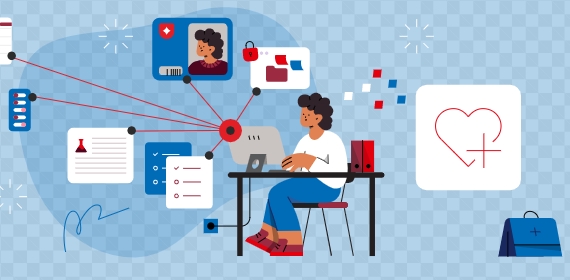Electronic Healthcare Records (EHRs) are revolutionizing the healthcare industry by streamlining patient care and improving outcomes.
Improved Access to Patient Information
EHRs make it easier for healthcare providers to access essential patient information, such as medical history, medications, and test results, leading to more efficient and effective care.
Reduced Errors and Duplication
By digitizing healthcare records, the likelihood of errors and duplications is minimized, resulting in better coordination of care and improved patient safety.
Enhanced Communication and Collaboration
EHRs facilitate communication and collaboration among healthcare providers, allowing for seamless transfer of information and coordinated treatment plans for patients.
Increased Efficiency and Productivity
With EHRs, healthcare providers can save time on administrative tasks and paperwork, enabling them to focus more on patient care and enhancing overall productivity.
Cost Savings and Revenue Generation
Implementing EHRs can lead to cost savings for healthcare organizations by reducing paperwork, streamlining processes, and minimizing errors. Additionally, EHRs can help generate revenue through improved billing accuracy and compliance.
Better Patient Engagement and Satisfaction
EHRs empower patients to take a more active role in their healthcare by providing access to their own health information and enabling secure communication with their healthcare providers, ultimately leading to enhanced patient satisfaction.
Overall, the use of Electronic Healthcare Records is transforming the healthcare industry by improving access to patient information, reducing errors, enhancing communication and collaboration, increasing efficiency and productivity, generating cost savings and revenue, and boosting patient engagement and satisfaction. Embracing EHR technology is essential for healthcare organizations to stay competitive and deliver high-quality care in today’s digital age.

